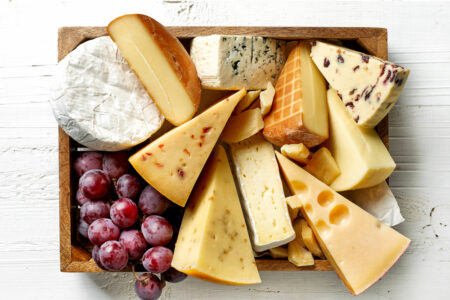Supply and demand

The announcement that Unilever and Tesco are engaged in a tussle over whether to increase the price of Marmite or not shows the depth of the international aspect of British companies. Unilever is an Anglo-Dutch company, and while Marmite may be made in the UK, there may be some elements of its manufacture that are reliant on overseas ingredients or packaging. That being said, there are many who suspect that Unilever is using Brexit to bump prices up.
In fact, although dairy has a strong domestic element to it, there will always be items that are either purchased overseas (packaging) or portions that are affected by non-domestic events. Brexit is throwing these usually unseen parts out into the harsh light of news coverage, as Unilever has seen. If you look at international firms such as Müller and Arla, the costs of producing elements internationally and bringing them into the UK has increased.
So, for example, even a UK yogurt maker using only British milk sourced locally, has to think about the plastic packages the product comes in. The cost of oil will influence the cost of plastics, and thus the cost of the end product.
Then, as Unilever is finding out, the retailer may rebel against paying more for the product. Who winds up paying? How much cost does the processor have to absorb before being able to pass it onto the consumer? How much more does the consumer have to pay for the product before they turn to another, cheaper product? How long is a piece of string? Depends on your budget, I guess.
These are questions that keep manufacturers up at night, and since Brexit, sleep is not likely to occur any easier for them. In the meantime, I will be stocking up on Marmite.



